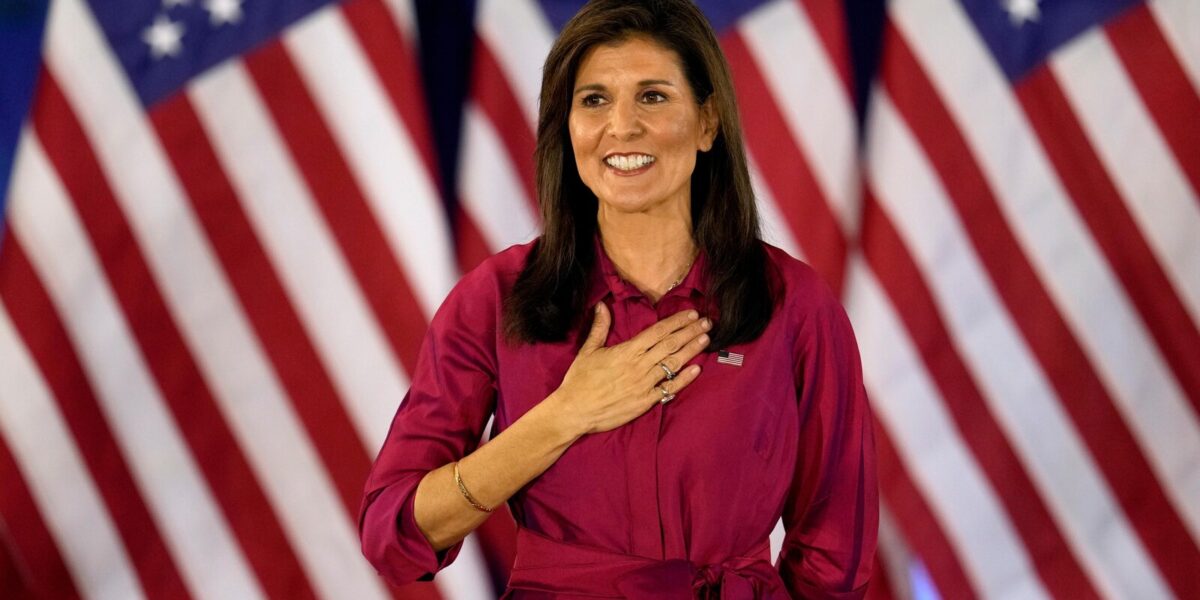INDIANAPOLIS — The ghost of Nikki Haley’s presidential campaign is ringing up significant support in state primaries despite her withdrawal from the race in March shortly before Donald Trump had clinched the Republican nomination.
The backing for Haley — most recently in Indiana, where she grabbed more than 21% of the votes on Tuesday — signals persistent discontent among party voters with the former president. He is racking up primary victories even as he has been spending much of his time recently in a New York courtroom facing state criminal charges involving hush money payments to a porn actor.
Haley, the former South Carolina governor and U.N. ambassador who qualified for the Indiana ballot before she ended her campaign two months ago, has not endorsed Trump.
A Haley campaign adviser did not immediately return a message seeking comment on the results.
Indiana Democrats did not have the option to vote “ uncommitted ” in their party primary. Unease about President Joe Biden’s handling of the Israel-Hamas war has sparked a protest vote movement in some states, raising similar questions about the strength of his support in November.
Haley’s support was largest in Indiana’s urban and suburban counties. She won 35% of the vote in Indianapolis’s Marion County and more than one-third of the vote in suburban Hamilton County. As in other states, she did best in the most Democratic areas of the state.
The exception was Lake County, home to Gary, just south of Chicago. Haley won only 14% of the vote in Lake County.
Biden’s campaign attributed Haley’s Indiana showing to Trump’s trouble in suburbs and cited similar primary numbers in swing states such as Georgia, Michigan and Pennsylvania. The president has made an open appeal to Haley supporters to back him in November.
The Trump campaign claimed without evidence that Haley’s support came from Democrats, adding that he would carry Indiana in November, as in 2016 and 2020.
Two weeks ago in Pennsylvania, Haley received nearly 17% of the primary vote. She earned similar support in Arizona just weeks after her exit.
Trump, who won every Indiana county, brushed off Haley’s support in an interview Tuesday with WGAL-TV of Lancaster, Pennsylvania.
“All of those people are going to come to me,” he said.
In late January, Trump said prematurely that Haley did not have enough signatures to make Indiana’s primary ballot. While Haley did get the minimum 500 signatures needed in each congressional district to make the ballot, the margin was razor thin in the 7th District, which includes Indianapolis.
Haley’s campaign was largely absent from the state even while she was in the race.
Indiana, with its 11 electoral votes, is far from the swing state that Pennsylvania is. Trump won Indiana by 16 percentage points in 2020.
Nonetheless, Haley’s support from 1 in 5 Republican voters raises questions about how they will vote in the fall. Before she dropped out, she took nearly 27% of votes in Michigan. She received 13% of the Georgia GOP vote shortly after her exit.
Haley, who ended her campaign after losses to Trump across almost all Super Tuesday states in early March, recently announced she was joining the Hudson Institute, a conservative Washington think tank. In her farewell speech a day after Trump’s big night, Haley declined to directly endorse him. She put the onus on Trump to win the support of the moderate Republicans and independent voters who had supported her.
“It is now up to Donald Trump to earn the votes of those in our party and beyond it who did not support him. And I hope he does that,” she said. “At its best, politics is about bringing people into your cause, not turning them away. And our conservative cause badly needs more people.”
Trump had been withering in his criticism of Haley, calling her “Birdbrain” in speeches to his supporters and questioning her decision to stay in the race.
Just before Super Tuesday, Haley said she no longer felt bound by a pledge that required all GOP contenders to support the party’s eventual nominee in order to participate in the primary debates.
She has said little publicly but has continued to utilize her email outreach, via her Stand for America PAC, sending out updates on her Hudson appointment, as well as the return of her husband, Michael, from a South Carolina Army National Guard deployment that saw him stationed in African during a large portion of her primary campaign.
___
Associated Press writer Meg Kinnard in Columbia, South Carolina, contributed to this report.


